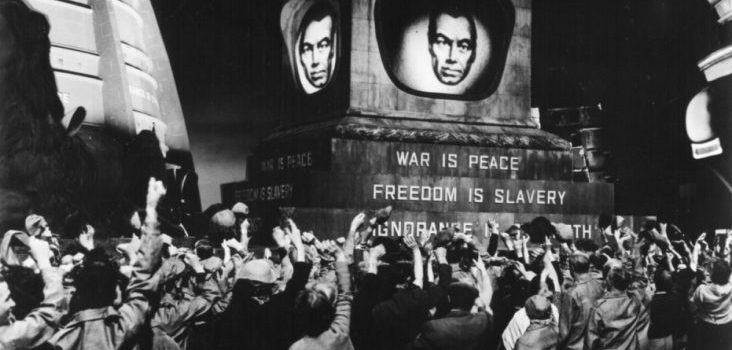search
date/time
 | Yorkshire Times A Voice of the Free Press |

Artis-Ann
Features Writer
1:06 PM 4th October 2019
arts
When Will We Ever Learn ? The Foresight of the Writer

George Orwell’s 1984 (so titled because he wrote it in 1948 and, unable to decide in which year to set his futuristic vision, simply reversed the last two digits) also presents a dystopian society which includes Thought-Police and Big Brother watching every move. The TV programme Room 101 takes its name from this book too but there is nothing humorous in Orwell’s version.
The two books were radically different in approach and for those who wish to investigate further, much literary criticism has been expended on the similarities and contrasts between these great novels. But what of the seeming ability of writers to foresee events?
E.M. Forster’s The Machine Stops is a lesser known novella, first published in 1909. It begins with a description of ‘a swaddled lump of flesh’ which turns out to be the main character, Vashti. It is set in an age when Man has destroyed the surface of the earth and humankind now dwells in individual subterranean cells. Physical contact has become abhorrent and travel is just as distasteful. ‘The Machine’ provides for all Man’s needs: food, hygiene, communication, education, entertainment – the gamut of existential comfort. The manual for The Machine is revered by its people. As the title suggests, however, machines cannot sustain forever, and the consequences of a breakdown may be catastrophic. As ever, no spoiler alert because I will not give away the plot or the ending, but I weep every time I read it, just as they ‘wept for humanity’.
What truly strikes me, and struck me for the first time many years ago during the power cuts of the early 70s, and more recently in the era of social media and video games, is how prophetic this book, like Brave New World and 1984, really was.
Also by Artis-Ann ...
Spying Is Lying: The Traitor By Ava GlassFlawed Characters:The Party House By Lin AndersonAn Extraordinary Life: Three Things About Elsie By Joanna CannonWhat A Tangled Web: Wartime For The Chocolate Girls By Annie MurrayPoems And Pressed Flowers: The Botanist By M. W. CravenThese books predicted technologies which we now take for granted, designed to make life better and easier - yet should we heed their implicit warnings? Be careful what we wish for? Are we, in fact, hurtling towards self-imposed oblivion and the destruction of the world as we know it? And what of the authors? Were they really seers or time-travellers trapped on a journey? What a thought!
Rather than being totally pessimistic about the future of the world, I prefer to wonder what excitement lies ahead of us still. Can we always simply dismiss as fantasy, the words we read in the realms of (science) fiction?
Ponder if you will.